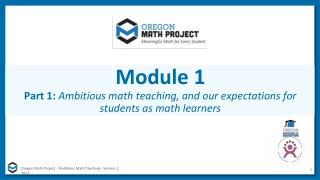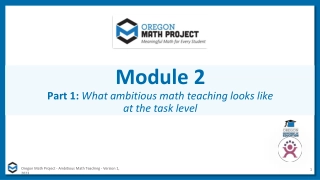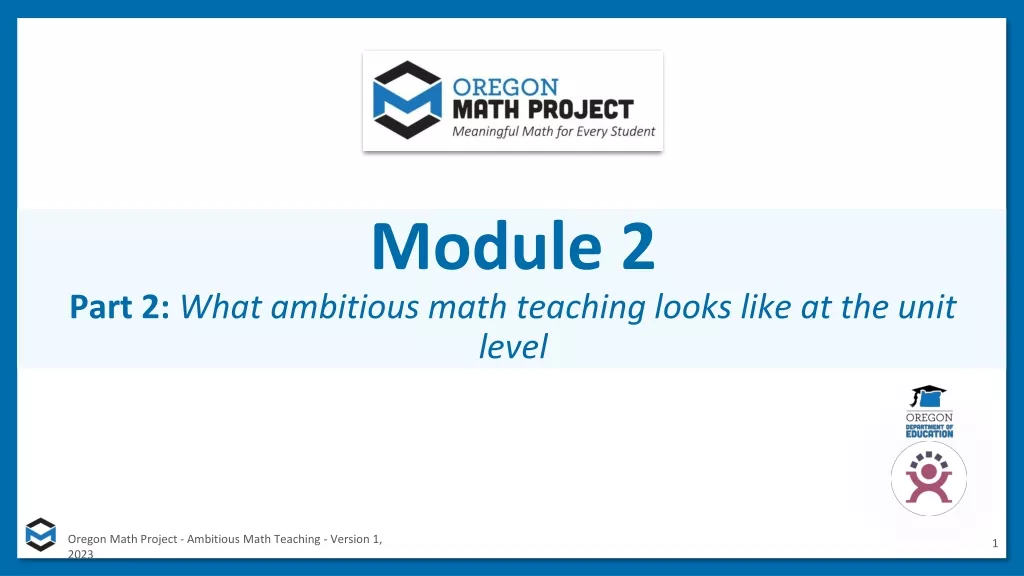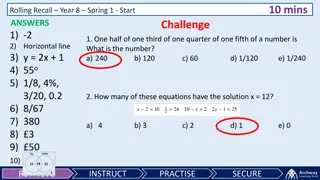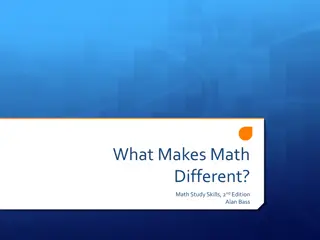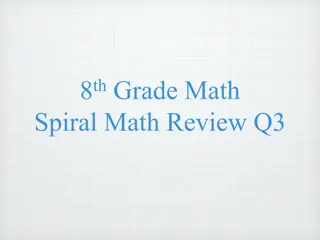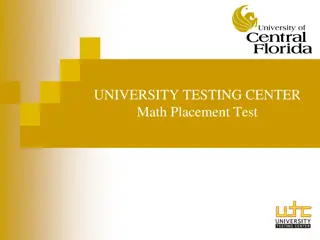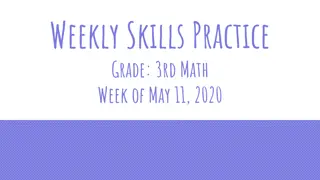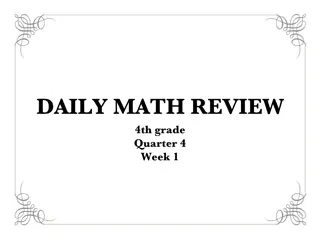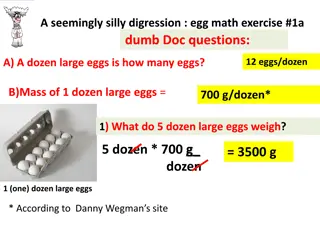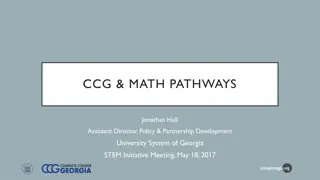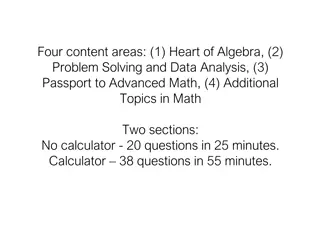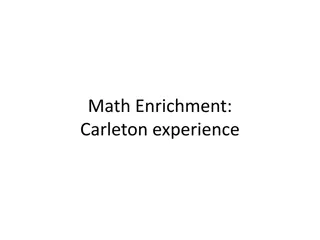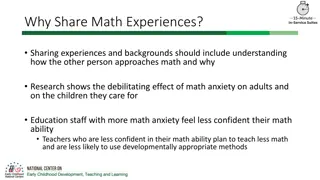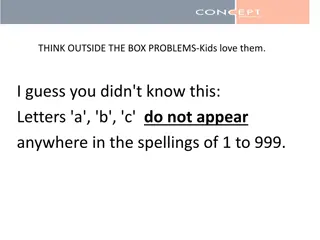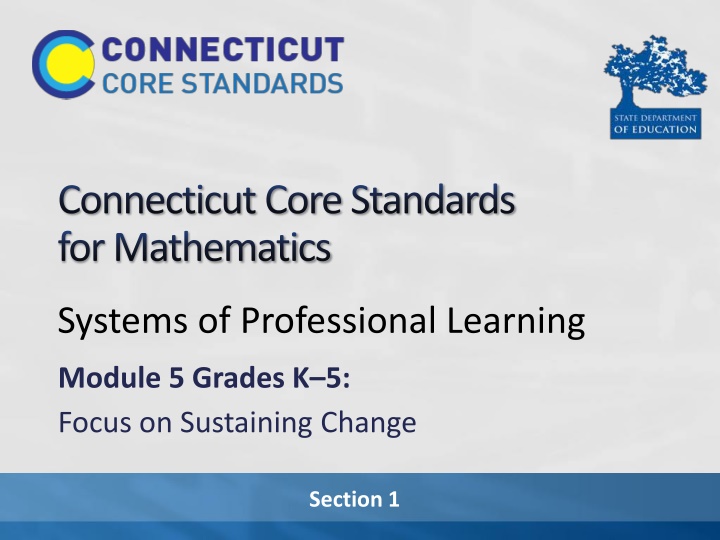
Connecticut Core Standards for Mathematics Systems of Professional Learning
Explore the key ideas and modules focused on sustaining change and enhancing teaching practices in the Connecticut Core Standards for Mathematics. Discover how to identify teacher needs, implement the practice standards, focus on content standards, and design effective learning experiences. Gain insights into teaching, learning, and assessment strategies for meeting the expectations set forth in the CCS-Math.
Download Presentation

Please find below an Image/Link to download the presentation.
The content on the website is provided AS IS for your information and personal use only. It may not be sold, licensed, or shared on other websites without obtaining consent from the author. If you encounter any issues during the download, it is possible that the publisher has removed the file from their server.
You are allowed to download the files provided on this website for personal or commercial use, subject to the condition that they are used lawfully. All files are the property of their respective owners.
The content on the website is provided AS IS for your information and personal use only. It may not be sold, licensed, or shared on other websites without obtaining consent from the author.
E N D
Presentation Transcript
Connecticut Core Standards for Mathematics Systems of Professional Learning Module 5 Grades K 5: Focus on Sustaining Change Section 1
Identifying and Understanding Teacher Needs Section 1 Page 6
Module 1 Key Ideas: Focus on the Practice Standards The CCS-Math embody a core shift in teaching and learning and are designed to bring focus, coherence, and rigor through Standards for Mathematical Content and Standards for Mathematical Practice. The Standards for Mathematical Practice embody the habits of mind that students should develop for thinking about and working with mathematical content at all grade levels. Implementation of the CCS-Math will be an ongoing process requiring collaboration, time, and professional engagement. Section 1 3
Module 2Key Ideas: Focus on the Content Standards The Standards for Mathematical Content are not just a new list of topics. Together, the Standards for Mathematical Practice and the Standards for Mathematical Content bring new rigor to the mathematics we teach and expect students to learn. For many, teaching the CCS-Math will require a shift in instructional practice. Section 1 4
Module 3Key Ideas: Focus on Teaching and Learning Universal Design for Learning is one way to provide support for the learning expectations of the CCS-Math for all students. Assessments can be designed as an assessmentOF learning or an assessment FOR learning. The formative assessment process allows teachers to continually monitor progress towards learning targets. Teaching, learning, and assessment are connected and the combination of the three are needed for meeting the expectations set forth in the CCS-Math. Section 1 5
Module 4 Key Ideas: Focus on Designing Learning The structure of the CCS-Math is purposeful and meaningful to the overall learning design. Learning targets help students reach specific milestones along the overall learning progression. Teachers must have in place a way to gather information on what their students know and are already able to do in order to effectively design a learning experience with appropriate entry points into the lesson. Planning CCS-Math lessons takes time and is worthy of careful thought and preparation. Section 1 6
Creating a Vision Key Ideas Key Ideas Key Ideas Teaching and Learning at the Classroom Level Section 1 7
Module 5 Key Ideas: Focus on Sustaining Change Teachers ongoing needs for implementing the CCS- Math need to be broken down into smaller segments in order for the most effective support to be provided. There are core instructional strategies that can be used as the foundation of coaching conversations. Reflective practice is a key element to making and sustaining changes in instructional practice. Teachers need opportunities to collaborate on the development and implementation of CCS-Math lessons. Section 1 8
Stages of Change Page 7 (Achievethecore.org) Section 1 9
Focus of the Change Understanding the Standards Content Knowledge Instructional Practice Designing CCS-Math Learning (Achievethecore.org) Section 1 10
Understandingthe Standards Do teachers understand the structure of the Standards? Have teachers looked at the Standards and made connections between and across grade levels? Do teachers understand the importance of the Practice Standards? Have teachers created I can statements for their grade level around the Practice Standards that they can use with their students? Have teachers been introduced to the Progressions Documents? Page 9 Page 8 Section 1 11
Content Knowledge Do teachers understand the depth and progression of the content that they are required to teach? Do teachers understand the habits of mind described by the Standards for Mathematical Practice? Page 9 Section 1 12
Instructional Practice Do teachers understand and are they able to teach using effective questioning strategies? Do teachers understand the importance of rigor and productive struggle and how to structure and provide learning opportunities at appropriate levels? Do teachers support students use of multiple approaches and multiple representations? Page 10 Section 1 13
Instructional Practice Do teachers understand and are they able to provide multiple entry points into the mathematics, thus making the learning accessible to all students? Do teachers understand how the nature of instructional tasks affects all of these points? Do teachers understand how, when, and why to have students work collaboratively and to promote rich mathematical discourse? Section 1 14
Designing CCS-Math Learning Do teachers understand the idea and importance of unit or chapter planning? Do teachers know how to create learning targets that are related and progress towards a larger big idea? Do teachers pre-assess students prior knowledge before planning lessons? Page 11 Section 1 15
Designing CCS-Math Learning Do teachers understand and do they implement a formative assessment process within their lessons? Do teachers lessons address the instructional shifts required by the Standards? Do teachers incorporate the classroom practices necessary to help students develop the depth of understanding required by the Standards? Section 1 16
Working Together Work together to determine what teachers need based on where they are now. For example: If teachers do not understand the idea and importance of unit or chapter planning, what needs to happen? Teachers need to understand how the Standards were written and developed so as to not be broken into those grain size pieces but to develop the bigger mathematical understanding. Section 1 17
Meeting Teachers Needs Section 1 18

